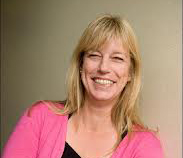Making Sense Of This Place
By Susannah Freymark
No other place evokes my sense of self more than the long, straight line of the horizon.
As a child you know where you belong. Your name, address and family ties you to a place and helps define who you are and your place in the world.
Our childhood landscape carries our history. It is our inner sense of where we belong reflected in an external world.
How much of that place where we grew up (for better or worse) influences our idea of place and where we choose to live as adults?
I know why the horizon does it for me. From age seven, every weekend we sailed out of the steelworks town of Whyalla to the open waters of Spencer Gulf on a 40 foot steel hulk of a boat built by my father.
I curled up in a sail on the foredeck and flew across the sea leaving behind a town covered in red iron ore dust.
Salty spray brushed my cheeks as the bow of the boat cut through the waves.
Our dog would curl up with me in the warmth of the sail and I’d bang the side of the boat to call the dolphins.
More often than not they would appear on cue and swim and swerve beneath the yacht’s hull.
All of us; me, the dog and the dolphins together on our own private adventure heading towards the horizon. I remember feeling complete. At one with nature and my own imagination.
Those years spent on the ocean bore a deep and sacred place within me. And I believe it is part of the reason why I am drawn to Byron Bay.
I feel passionately about this land, the weather that shapes it, the ocean and the asymmetrical mountains that edge the coastline.
I’m not the only one. Dr Baden Offord, senior lecturer of Cultural Studies at Southern Cross University confessed that he too has topophilia which means a love of place.
At the Politics, Passion and Perversity forum he talked on the ethics of belonging.
He declared his passion for Byron Bay and the surrounding hills. Every week for the past twenty three years he has walked the 3.5 km path that circles the lighthouse.
He recalled an extraordinary natural event when he witnessed massive water spouts bursting out of the sea near Julian Rocks.
He reminisced about the now extinct Lifestream Café.
‘These things have a Byronian scent about them,’ he said. ‘They resonate what this place means to me.’
Everybody has a deep and abiding sense of place as part of their identity and sense of belonging. It can’t be understated Baden emphasised.
It is the intersection of nature and culture.
Byron Bay shows this like no other place and as the second most visited spot in NSW after the Opera House it has its own unique set of pressures to bear.
‘The way we map our lives is in response to how we belong to a place.’
Baden described problems within our community by giving the example of throwing a ball.
A problem is thrown at you, you have to hold it. We face this all the time and ongoing dialogue is the way to deal with problems.
Being poetic as well as pragmatic in our community conversations he says.
The protocols of sharing place and living together include safeguarding the social, the sacred and our resources.
We need to recognise our shared space and look for where the connections are between us.
Respect for the land and the Arakwal people is essential.
Other components on the Ethics of Belonging include deep listening, deep attention and being mindful of exclusion.
We all bring a different sense of place to the conversation but if we use the protocols Baden recommends pathways will occur because we walk them together.
Look around the community and see this reflected in our interactions, our newspapers and the way we care for this place.
Yes – we argue and disagree, we fight for causes and bemoan the lack of community. But this debate and opinion is the fuel for our strength of feeling about Byron Bay.
If, when we come together and converse we remind ourselves that we are likely to agree on a lot more than we disagree we can engage in vibrant community conversation.
I see people who have a passion to make this place better through their work in the environment, community, youth, and through caring.
Maybe so much so that it hurts when things don’t work out how they planned. That’s part of loving a place.
I came here without a job, didn’t know anyone and without any obvious connection to the place.
Most people I have met are here in Byron Shire by choice rather than being driven by economic and employment opportunities.
That this place creates such an epidemic of topophiliacs either through its geography, community or cultural and spiritual connections is of no surprise.
Place is not static Baden reminds us. And neither are we.
Yet I can see myself living here and relishing the sweep of the horizon across the bay until the day I die.
Written by Susannah Freymark for the Here & Now magazine, Byron Bay
Leave your comment about Making Sense Of This Place or share with your friends on Facebook

Leave a Reply